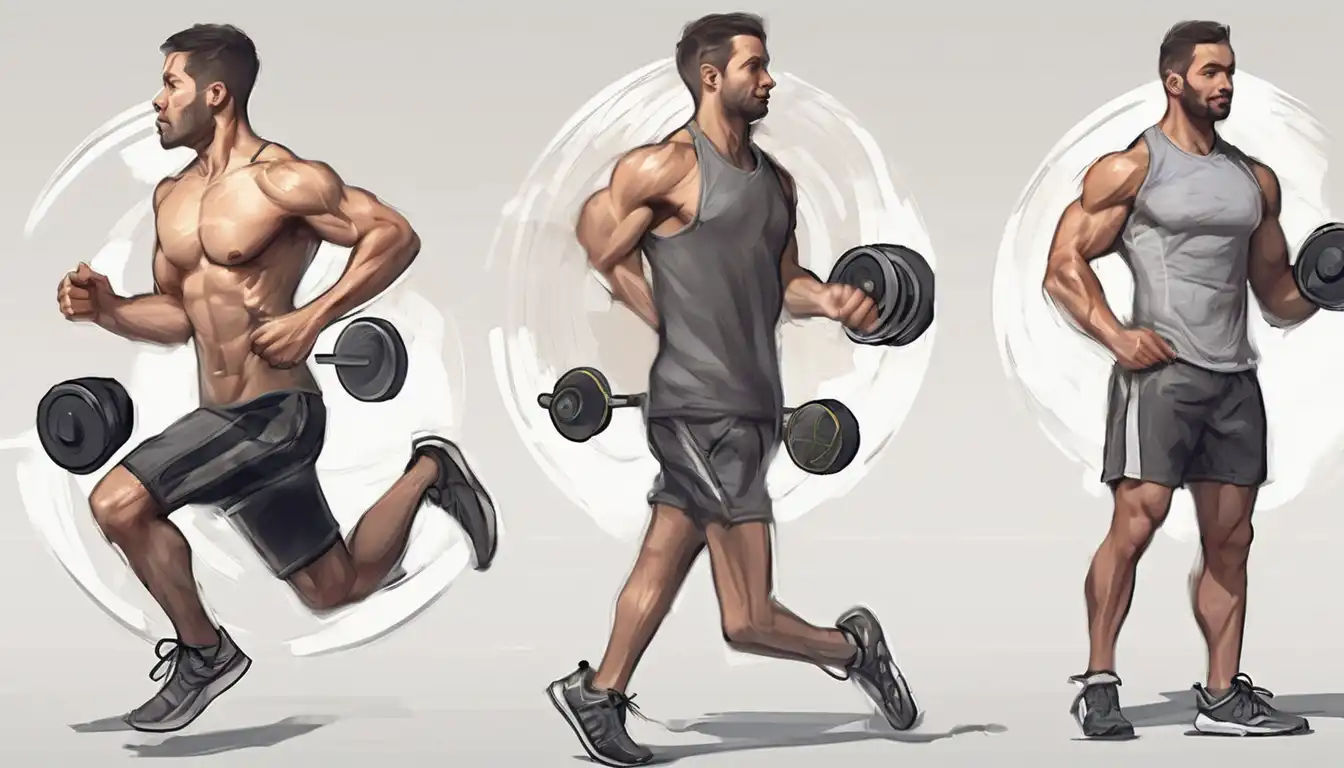Your Journey to Fitness Starts Here
Embarking on a fitness journey can feel overwhelming, but with the right approach, anyone can build a sustainable workout routine that delivers real results. Whether you're looking to lose weight, build strength, or simply improve your overall health, this comprehensive guide will walk you through every step of creating and maintaining an effective fitness plan.
Why Starting Right Matters
Many beginners make the mistake of diving into intense workouts without proper preparation, leading to burnout or injury. A well-structured beginning sets the foundation for long-term success. Research shows that people who start with gradual, consistent routines are three times more likely to maintain their fitness habits compared to those who jump into extreme programs.
Assess Your Current Fitness Level
Before designing your routine, take an honest assessment of where you are today. Consider factors like your current activity level, any health conditions, and your fitness goals. This self-assessment helps you create a realistic plan that matches your capabilities while challenging you appropriately.
Key Assessment Questions
- How many days per week are you currently active?
- Do you have any physical limitations or health concerns?
- What are your primary fitness objectives?
- How much time can you realistically commit?
Setting SMART Fitness Goals
Effective goal-setting is crucial for maintaining motivation and measuring progress. Use the SMART framework: Specific, Measurable, Achievable, Relevant, and Time-bound. Instead of "get fit," aim for "walk 30 minutes daily for the next month" or "lose 5 pounds in six weeks."
Examples of SMART Fitness Goals
- Complete three 45-minute strength sessions weekly for two months
- Increase daily step count from 5,000 to 10,000 within four weeks
- Perform 10 consecutive push-ups within one month
Choosing the Right Exercise Types
A balanced routine includes four key components: cardiovascular exercise, strength training, flexibility work, and balance exercises. Each serves different purposes and contributes to overall fitness. Beginners should aim for a mix that addresses all areas without overwhelming themselves.
Cardiovascular Exercise
Cardio improves heart health and burns calories. Start with low-impact options like walking, cycling, or swimming. Aim for 150 minutes of moderate-intensity cardio weekly, broken into manageable sessions. As you progress, you can explore more intense cardiovascular workouts.
Strength Training Basics
Building muscle boosts metabolism and supports joint health. Begin with bodyweight exercises or light weights, focusing on proper form. Include exercises for all major muscle groups two to three times weekly. Our strength training guide offers detailed instructions for beginners.
Flexibility and Balance
Often overlooked, flexibility and balance work prevent injuries and improve movement quality. Incorporate stretching after workouts and consider basic yoga or tai chi. Even 10 minutes of stretching daily can significantly improve your range of motion.
Creating Your Weekly Schedule
Structure your workouts throughout the week to allow for proper recovery. A sample beginner schedule might include:
- Monday: 30-minute walk + full-body stretching
- Tuesday: Rest or active recovery (light walking)
- Wednesday: Strength training (upper body focus)
- Thursday: 25-minute cycling + flexibility work
- Friday: Strength training (lower body focus)
- Saturday: Active recreation (hiking, swimming)
- Sunday: Complete rest
Essential Equipment for Beginners
You don't need expensive gear to start. Basic items include comfortable athletic shoes, workout clothes, and a water bottle. As you progress, consider investing in resistance bands, dumbbells, or a yoga mat. Many effective workouts require no equipment at all.
Proper Form and Technique
Learning correct form prevents injuries and ensures you get the most from each exercise. Start with lighter weights or modified versions of exercises until you master the movements. Consider working with a trainer initially or using reliable online resources to learn proper techniques.
Common Form Mistakes to Avoid
- Rounding the back during lifts
- Locking joints during strength exercises
- Holding your breath instead of breathing rhythmically
- Using momentum instead of muscle control
Nutrition and Hydration Support
Exercise alone isn't enough—proper nutrition fuels your workouts and recovery. Focus on balanced meals with lean proteins, complex carbohydrates, healthy fats, and plenty of vegetables. Hydration is equally important; drink water before, during, and after exercise.
Pre- and Post-Workout Nutrition
Eat a light snack containing carbs and protein about 60-90 minutes before exercising. After your workout, consume protein within two hours to support muscle repair. Our fitness nutrition guide provides detailed meal planning advice.
Tracking Your Progress
Monitoring your improvements keeps you motivated and helps adjust your routine as needed. Track measurements like weight, body measurements, workout duration, and how you feel. Consider using a fitness app or journal to record your journey.
Overcoming Common Challenges
Every beginner faces obstacles. Lack of time, motivation slumps, and plateaus are normal. Prepare strategies in advance, such as scheduling workouts like appointments, finding an accountability partner, or varying your routine to prevent boredom.
Staying Motivated Long-Term
Consistency matters more than intensity. Celebrate small victories, focus on how exercise makes you feel, and remember that progress isn't always linear. If you miss a workout, simply get back on track without guilt.
When to Seek Professional Guidance
If you have health concerns, significant weight to lose, or specific performance goals, consulting with healthcare providers or certified fitness professionals can provide personalized guidance tailored to your needs.
Building Sustainable Habits
The ultimate goal is making fitness a natural part of your lifestyle. Start with manageable commitments and gradually increase intensity and duration. Remember that even short, consistent workouts yield better results than sporadic intense sessions.
Starting a fitness routine is one of the most rewarding decisions you can make for your health. By following these steps and listening to your body, you'll build strength, confidence, and habits that last a lifetime. Remember that every expert was once a beginner—your journey starts with that first step.
